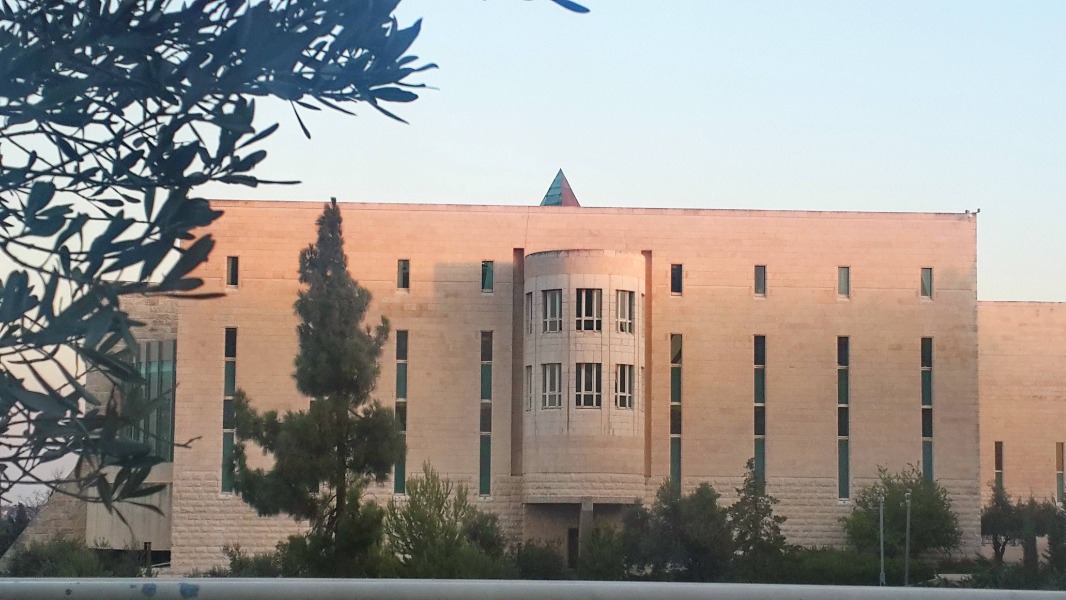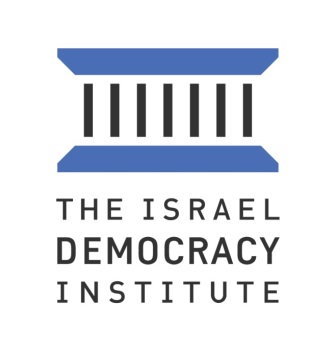Three Big Cases in Israel's September to Remember

Published by The Lawfare Institute
in Cooperation With

 Between the beginning of the school year and the high holidays, September is usually a relatively tranquil time in Israeli politics, especially since the Knesset is in summer recess until mid-October
Between the beginning of the school year and the high holidays, September is usually a relatively tranquil time in Israeli politics, especially since the Knesset is in summer recess until mid-October
This year, however, September has a completely different vibe. This month, the Israeli Supreme Court (ISC), sitting as the High Court of Justice (HCJ), will hear petitions in three dramatic cases, which might prove to be a turning point in the highly controversial political program for an overhaul of the Israeli judicial system. These cases may just mark a turning point for Israeli constitutional law as a whole.
The three petitions include an administrative law challenge to the refusal of the minister of justice to convene the Judicial Selection Committee; a constitutional challenge to the amendment to the Basic Law: The Judiciary, which stripped away the court’s power to review the reasonableness of governmental and ministerial decisions; and a constitutional challenge to the amendment to the Basic Law: Government, which hardened considerably the conditions for declaring the prime minister as “incapacitated.”
The high political and legal drama surrounding these cases only intensified after the attorney general of the State of Israel joined the petitioners in all three cases, calling on the HCJ to accept the three petitions, strike down the minister’s decision not to convene the Judicial Selection Committee, and nullify amendments to the basic laws—for the first time in Israel’s history.
Convening the Judicial Selection Committee Case
The first of the three cases involves petitions submitted by a public interest nonprofit called the Movement for Quality Government in Israel and the main opposition party, Yesh Atid, demanding that the minister of justice convene the Judicial Selection Committee. The case was originally scheduled to be heard on Sept. 7, but the hearing was postponed to Sept. 19 following a last-minute request by the minister of justice, who needed more time to prepare his own independent defense.
As discussed in detail in a previous article, Israel’s Judicial Selection Committee is currently composed of three sitting justices from the ISC, two members elected by the Israeli Bar Association, two government ministers, and two members of the Knesset (one from the coalition and one from the opposition). The appointment system in Israel often has been regarded as a system that ensures a high degree of independence and professionalism of the judges appointed, while featuring some degree of judicial accountability vis-a-vis the political branches. Judicial appointments are approved by a simple majority to the 29 courts of first instance (justices of the peace) and six district courts throughout Israel. Judicial appointments to the ISC are approved, however, by a vote of seven out of the nine members of the committee (by contrast, the president of the ISC is selected by a simple majority of the committee; in practice, the tradition has been always to appoint the longest serving justice as president—this is referred to in Israel as the “seniority rule”).
The ruling coalition is keen, as part of the judicial overhaul package, to change the composition of the Judicial Selection Committee. In March, the Knesset tabled a bill that sought to provide the ruling coalition with total control over all judicial appointments. This bill has since been all but discarded. The coalition and the opposition have not, however, been able to agree on any changes in the composition of the committee. In the meantime, Minister of Justice Yariv Levin refuses to convene the committee in its current composition, alleging that it is a “distorted composition.” His refusal was cemented, it seems, after the elections to the Israeli bar in June, in which anti-overhaul candidates won a landslide victory, ensuring that the two representatives of the bar in the committee would not be supportive of the government’s candidates for judicial office, and leaving in the hands of the coalition control over only three out of the nine seats on the committee. The upshot is that the committee has not been convened for over a year now (since before the November 2022 elections), and no new judges have been appointed to any judicial instance. As a result, the judicial system is under great strain: Dozens of judges have retired, and the heavy load on the remaining judges is bringing the system to the verge of collapse.
According to Article 7 of the Courts Law 1984, “[i]f the Minister of Justice sees that there is a need to appoint a judge, he shall convene the Judicial Selection Committee.” The petitioners claim—and the attorney general supports this claim—that the authority of the minister of justice to convene the committee is actually a legal duty in relation to which the minister has little or no discretion. Both the petitioners and the attorney general invoke in this regard Article 11 of the Interpretation Law 1981, which provides that a legal obligation to take action implies a duty to act with appropriate speed, and maintain that the minister’s procrastination violates this standard. The minister (who, since the attorney general refuses to represent him, is represented by a private attorney) claims, in response, that his authority is one to which broad discretion is attached and that he is entitled to delay the convening of the committee while the Knesset considers changes in its composition.
Despite the seemingly legal-technical nature of the question, this case is important and interesting. If the court decides to order the convening of the committee—as we expect it to do—it will be the first time since the beginning of Israel’s current crisis in which the court will have actively intervened in an issue that the coalition views as central to its judicial overhaul plan. The minister of justice has also declared in the past that when the court is acting outside its scope of authority, it is invited to enforce its own judgment, and he thus might refuse to convene the committee even if ordered to do so. As a result, a decision by the court to order the minister to convene the committee will also be the first time in which a full-blown constitutional crisis might ensue, that is, if the minister indeed refuses to implement a High Court of Justice judgment.
The Reasonableness Amendment Case
An even more high-profile case than the committee convening case is scheduled for a hearing on Sept. 12. The petitioners, including civil society groups (the Movement for Quality Government in Israel, among others), the Israel Bar Association, and a former chief of the Israeli Defense Forces Central Command, Major General (retired) Roni Numa, have asked the HCJ to strike down an amendment to a basic law, removing the power of Israeli courts to use the “patently unreasonable” doctrine when judicially reviewing executive branch decisions taken at the ministerial level. The law was passed on July 26 as an amendment to the Basic Law: The Judiciary, and its contents were discussed here before.
This case is extremely important for a variety of reasons. First, as we discussed in detail previously, the patently unreasonable doctrine has served as grounds for judicial review over decisions taken by the executive branch for the past four decades, and it has constituted a major tool both for the courts and for the internal executive branch legal services in preventing the government from adopting clearly unreasonable decisions that could run contrary to human rights standards, involve inappropriate political appointments, or use state resources in order to benefit special interest groups. Stripping away the court’s jurisdiction to review many executive branch decisions based on reasonableness might bring about a flood of arbitrary decisions, an increased risk of public corruption, and reduced governmental accountability. While other administrative law doctrines remain available to the HCJ, at least for the time being, they provide only limited alternative coverage and are often harder to apply than the reasonableness doctrine, which emphasizes the need to justify the different considerations underlying executive decisions and to explain the relative weight assigned to each of them.
Second, the case is important because of the nature of the constitutional issues that will be addressed by the HCJ. Israel does not have a complete constitution, but it does have a set of basic laws, which are considered by the HCJ as superior to ordinary laws. In a 1995 landmark case (United Mizrahi Bank), the HCJ held that basic laws are a manifestation of the Knesset’s historical role as a constitutional assembly (in addition to being a legislative body). It should be stressed, however, that there is no special procedure for enacting basic laws in the Knesset or for amending them. Procedurally, these are simply laws that the Knesset has designated in their title as “Basic Laws.” Since 1995, when the court first declared that it had the authority to strike down laws that are incompatible with basic laws, the court has struck down 23 laws or law provisions. It has not struck down to date any of the basic laws themselves.
In fact, the reasonableness amendment seems to have been enacted as an amendment to a basic law precisely in order to immunize it from constitutional review. The court would no doubt otherwise consider the stripping of its jurisdiction by ordinary legislation as unconstitutional. By incorporating the amendment into a basic law, the legislators who supported it hoped to avoid such consequences. Nonetheless, the petitioners are asking the HCJ to strike down, for the first time in the country’s history, a provision of a basic law.
Significantly, this is not the first time petitioners have invited the HCJ to review the constitutionality of a basic law, and in a few past cases, the court has indicated that it would consider striking down a basic law on the basis of two alternative legal doctrines. The first doctrine is the “abuse of constitutional authority” doctrine, according to which the HCJ could consider whether a law entitled as a “Basic Law” has been mislabeled as such, since its contents do not properly belong in a constitutional text. The tests that the court developed in this regard—in a 2021 judgment on a temporary amendment of the constitutional provisions mandating certain state budget approval timelines—include the permanence of the provision; its general, as opposed to personalized, nature; and its fit within the general “constitutional scheme.” A basic law that fails one of these tests will have to be “justified”—that is, the legislature would have to explain why it nonetheless deserves constitutional status. In that 2021 case, the court held that the temporary amendment of a basic law in question was an abuse of constitutional authority, but since it had already expired, there was no need to strike it down.
An alternative doctrine for constitutional review of basic laws is the “basic identity” doctrine. According to this doctrine, endorsed by the court in the Hasson case (2021), which reviewed challenges to the Basic Law: Israel – the Nation State of the Jewish People, a new basic law cannot undermine the core of Israel’s identity as a Jewish and democratic state. The HCJ opined, however, that the doctrine refers only to “nucleus” aspects of the state’s constitutional identity and would be relied on only in extreme cases. In the 2021 case, the HCJ did not consider the basic law as violating the core identity of the state and applied normal constitutional interpretation tools to resolve any tension existing between its contents and basic democratic principles.
The petitioners in the “reasonableness” case have tried to apply these two doctrines to the amendment of the Basic Law: The Judiciary. They maintain that the amendment does not fit well the existing constitutional framework, since it addresses in a basic law judicial review over administrative acts, without anchoring in law the substantive standards of administrative law which the executive must follow. They also accuse the Knesset of acting in an institutional conflict of interest when passing an amendment that increases the respective powers of the government, which effectively controls the Knesset’s operations. Furthermore, they allege that by creating a judicial review-free zone of executive authority, the reasonableness amendment would undermine the rule of law, remove checks and balances, harm the protection of human rights, and therefore undermine the identity of Israel as a democratic state. In addition, they point to the fact that this amendment was only the first stage in a much broader judicial overhaul plan. The experience of other countries teaches us, according to the petitioners, that democracies are not eliminated with a single blow; rather, they are eroded through multiple steps. Whereas each of these steps, when viewed in isolation, might not be considered as critically detrimental in and of itself, each should be considered as part of a larger scheme to undermine democracy.
Some of the petitioners have asked the court to develop a third doctrine for meta-constitutional review: an “inappropriate procedure” doctrine. According to this proposed doctrine, adopting a basic law or an amendment thereto should follow appropriate procedures and deliberative standards. They argue that the steamrolling of the basic law amendment through the Knesset within one month through a dubious procedure (a private proposal by the chair of the Constitution, Law and Justice Committee that was endorsed by a majority vote on the committee as a committee proposal in violation of an unwritten tradition that committee proposals are supported by all or almost all members of the committee) and the refusal of the coalition to take on board any of the concerns raised by critics of the amendment (including many experts who appeared before the committee) violated accepted norms of parliamentary deliberation relating to constitutional amendments.
The third reason we consider the case important is because it exposes the rift between the attorney general and the government. On Sept. 3, the attorney general submitted a written response to the petitions in which she lent her support to the position of the petitioners (as a result, the government will be represented in this case by a private attorney also). According to the attorney general, the stripping of jurisdiction over reasonableness review runs contrary to basic notions of the rule of law, equality before the law, and democratic accountability, and it therefore undermines the identity of Israel as a Jewish and democratic state. The attorney general called for the annulment of the amendment, urging the court not to adopt any compromise positions, such as mitigation of the constitutional harm caused by the amendment through restrictive interpretation or delaying the amendment’s entry into force.
The attorney general’s support of the petitions underscores the independence of the attorney general in Israel and its self-perception as a state agency serving, first and foremost, the Israeli public and the rule of law, and only later the government, whose own position with respect to the constitutionality of the reasonableness amendment the attorney general considered to be untenable. In its response to the petition, the government maintains that the court has no authority to exercise constitutional review over constitutional amendments (this is also the position of the Knesset’s legal adviser).
The fourth reason for the importance of the petitions is that this involves the first major court review of the first stage of the government’s judicial overhaul plan. If the HCJ strikes down this amendment—which is arguably among the least harmful parts of the plan—the court would send a strong signal concerning its willingness to oppose other parts of the judicial overhaul plan as well, should the coalition try to advance them.
The case is also unique because of the composition of the panel that will discuss it. Normally, the HCJ hears cases in panels of three justices. This time, however, for the first time in the history of the Israeli Supreme Court, the court will sit in a panel comprising all 15 justices. This, in and of itself, suggests that the justices consider the case of extreme importance and as a case that could potentially result in the establishment of legal doctrine in regard to a foundational question of Israeli constitutional law on which the case law of the court has not yet consolidated.
Finally, the Sept. 12 hearing will also be one of the last cases scheduled to be heard by the president of the ISC, Esther Hayut, and Justice Anat Baron, both of whom will retire in October after having reached the mandatory retirement age of 70. Since they are two of the most liberal justices on the court, and since it is highly unlikely that the Judicial Selection Committee would soon reach a decision regarding the appointment of their replacements (such a decision would need to attract the support of seven members of the committee), it is unlikely that the petitioners would have a better chance for blocking the judicial overhaul plan in the foreseeable future. It might be worthwhile noting that even though Hayut and Baron retire in October, they will be able to author judgments for 90 days after their retirements. The timeline for a judgment in this case is therefore set: Barring unforeseen developments, like a coalition legislative push for a change of the amendment in order to preempt the ISC ruling, the court will issue its judgment in the case by mid-January at the latest.
The Incapacitation Law
On Sept. 28, the HCJ is scheduled to hear another big case: the petition against the “incapacitation law.” This is again an amendment to a basic law—Basic Law: The Government—which provides that incapacitation of the prime minister, resulting in his or her temporary or permanent removal from office, could be declared only by the prime minister himself or herself, or by the Knesset and the government itself, both acting by a special majority, and on medical grounds only (before the amendment, the law did not set out a process for declarations of incapacitation and did not list the grounds for incapacitation).
The amendment passed in March and was intended explicitly to preempt a potential move by the attorney general to declare that Prime Minister Benjamin Netanyahu was “legally incapacitated” because of his continuous violations of the terms of the conflict of interest arrangement he agreed to adhere to when assuming office. Of particular concern were those that involved his becoming directly engaged with the judicial overhaul plan, which could indirectly affect his own criminal trial (for example, by giving the coalition he heads a decisive say on whether his judges would be later promoted to the ISC). Netanyahu, it should be remembered, is currently on trial in the Jerusalem District Court on corruption charges and hence was barred by the attorney general from personally engaging with any political decision relating to reforms in the judicial system.
Although the attorney general maintained that she had not intended to declare Netanyahu as incapacitated, the prime minister felt that the potential risk of an incapacitation declaration prevented him from addressing the political crisis relating to the minister of justice’s judicial overhaul plan. Indeed, shortly after the amendment was passed, Netanyahu declared that he can now become personally involved in discussions relating to the plan and that he is “entering into the event.”
As with the petitions against the reasonableness amendment, the petitions against the incapacitation amendment—brought by, among others, the Movement for Quality Government in Israel and an opposition lawmaker (Knesset member Oded Forer)—involve a claim that an amendment to a basic law should be struck down. Here, the main legal ground seems to be an abuse of the constitutional process, since the amendment is “personal”—that is, it is intended to free Netanyahu himself from the pressures and conflicts of interest connected with his criminal trial. This is also the position of the attorney general who, here too, joined the petitioners and called for annulment of the amendment. Following an initial discussion of the case in July, the court has asked the parties to focus their future pleadings on the question of whether the amendment should be construed to take effect only after the next elections—suggesting that this will be the probable outcome of the case.
What Now?
All three of the cases to be heard before the HCJ in September raise important questions of principle regarding review of basic laws and administrative authority and have potentially dramatic repercussions for the political battles over the future of the judicial overhaul plan. Rulings against the governing coalition in one or more of these cases—as we expect to happen—could spark a full-fledged constitutional crisis in Israel: a situation in which the government would declare that it would not obey judgments of the Israeli Supreme Court that it considers to be rendered in excess of the court’s authority. In addition, members of the coalition have already declared that the attorney general should be fired for her refusal to represent the government—a step that, if attempted, would most likely amplify the already vast anti-government protests.
At any rate, the clash between the court and the government seems almost unavoidable; only a surprise political compromise could allow the parties to avert this outcome. The probability of such a compromise seems low at present, given the strong political pressure exerted by hardliners in both the coalition and opposition camp against any compromise, and Netanyahu’s limited control over the more extreme parts of his coalition who are fully committed to the judicial overhaul plan and to clashing with the country’s rule-of-law establishment.




.jpg?sfvrsn=8588c21_5)
